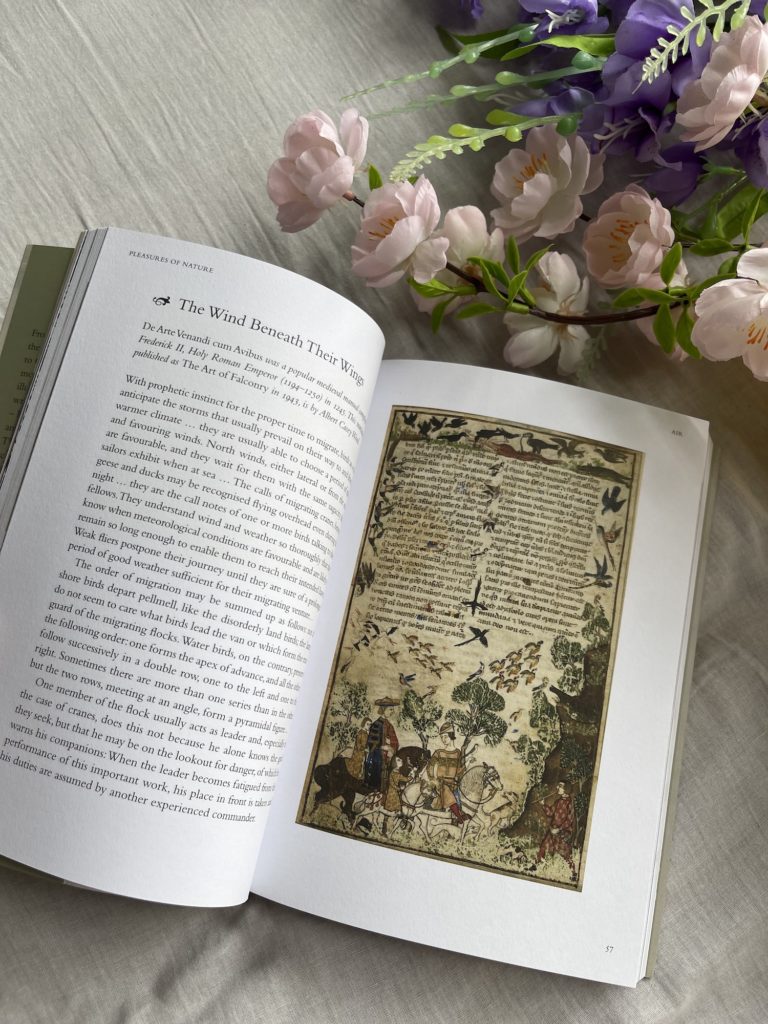Ok, this is definitely a book that I selected based on the cover. I mean, it looks gorgeous! And to make things better, it has a lot of beautiful illustrations and gorgeous poems and texts as well.
As the title indicates, Pleasures of Nature collects various poems and short texts about nature into one place. The book is organised into six sections: Earth, Air, Fire, Water, Surprise (a contribution from Terry Pratchett), and Deep Thinking (for passages that engender a sense of wonder). Each text comes with a short introduction of the author and the text.

This is honestly a very lovely collection. All but two pieces are either from Western (mainly British and American, if I’m not wrong) writers or from the ancient Greeks and Romans. The two pieces that are not from these traditions are Japanese, with this haiku from Basho that caught my eye:
Winter solitude
in a world of one colour
the sound of the wind
While I do wish that the text was more international in its flavour, I still enjoyed this collection very much. I was quite surprised by how complex some texts meant for children were, but in general all the pieces were very evocative of the wonders of nature. I am tempted to start picking up pieces from this piece to copy out into my journal, just so I can start getting a feel for the language.
Anyway, to end, I wanted to include this quote about nature that was not in the book, purely because I also love it very much:
“The main point of Christianity was this: that Nature is not our mother: Nature is our sister. We can be proud of her beauty, since we have the same father; but she has no authority over us; we have to admire, but not to imitate. This gives to the typically Christian pleasure in this earth a strange touch of lightness that is almost frivolity. Nature was a solemn mother to the worshipers of Isis and Cybele. Nature was a solemn mother to Wordsworth or to Emerson. But Nature is not solemn to Francis of Assisi or to George Herbert. To St. Francis, Nature is a sister, and even a younger sister: a little, dancing sister, to be laughed at as well as loved.”
G.K. Chesterton, Orthodoxy

It’s definitely a pity that this collection isn’t more international, but it sounds like what is there is really beautiful
Yup! I would just take it as nature writings from the West, which is also something I can appreciate (: